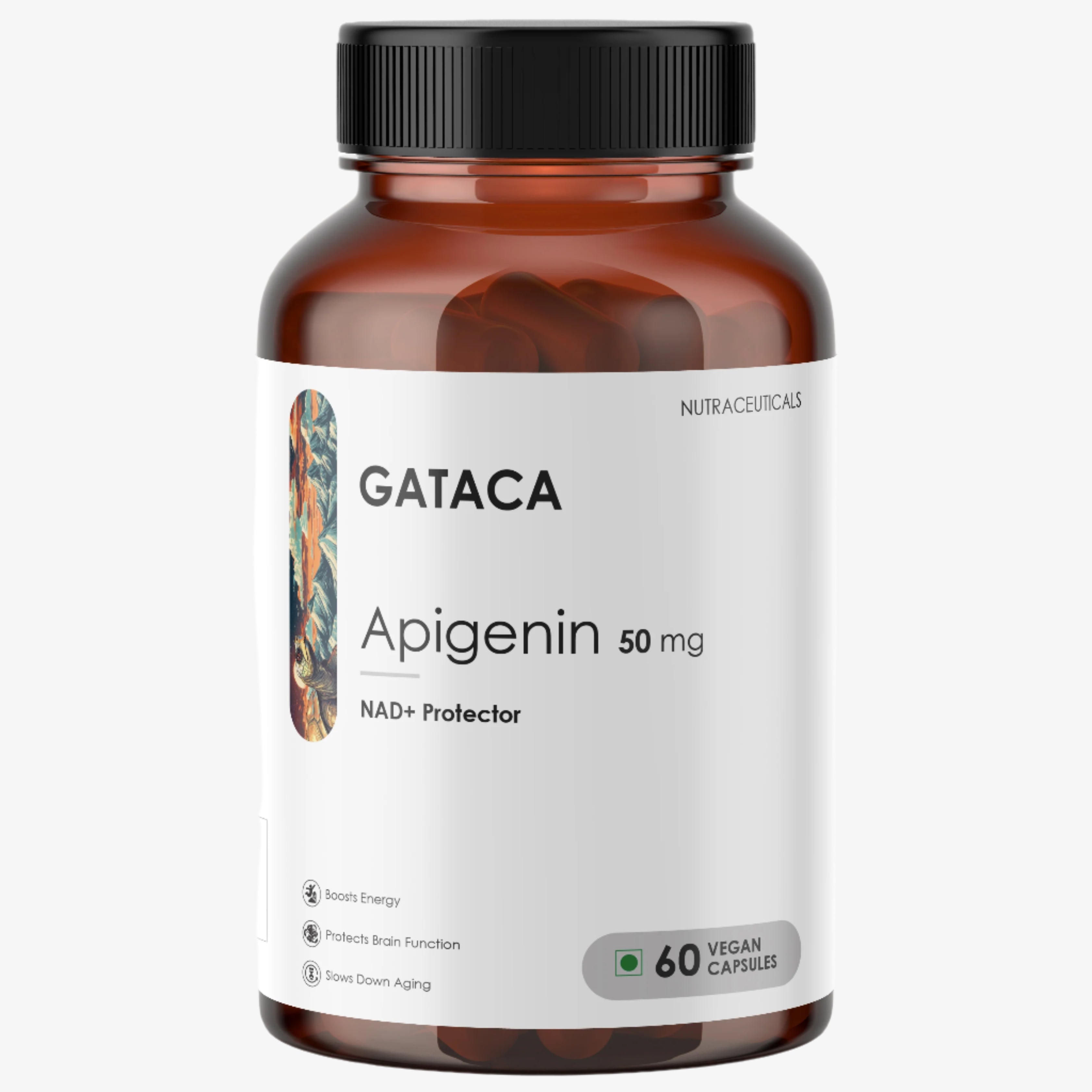Introduction
Apigenin, also called 4’,5,7-trihydroxyflavone is a plant flavonoid that normally occurs in herbs like parsley, celery, chamomile, spinach, red onions and green chillies, among other vegetables.
It is found in very minute quantities in the food we eat but is pretty effective anyway. Apigenin has been known for a long time by biologists and chemists (from the early 1900s) but only now is it being studied in detail.
Preclinical studies have shown promising results for the most part, which is why now its usage as a dietary supplement that promotes health is booming. Apigenin is needed in very small amounts and it has a largely inhibitory effect on the muscles and brain- which means it promotes relaxation in general.
What Are The Benefits Of Apigenin Supplement?
Apigenin’s main strength lies in its ability to regulate NAD+ levels in the body. NAD+ levels drop by large amounts as one ages, but it is a crucial molecule that helps cells perform all their functions with elan.
NAD+ levels drop due to greater need for cellular maintenance as you age. Levels drop because of one glycoprotein called CD38, which plays a significant role in inflammation, consumes NAD+ molecules to maintain its level of activity.
Apigenin works to cut down on the amounts of CD38 being produced in the body, thus helping NAD+ levels remain stable. Apigenin also interacts with specific inhibitory neurotransmitter receptors in the brain- which means it helps you sleep better.
When Should You Take Apigenin For Best Results?
Apigenin should be taken at night ideally, as it promotes muscular relaxation on a large scale- something that happens when you go to sleep.
Apigenin helps modulate GABA (gamma amino butyric acid) levels in the brain, helping you feel less stressed. It's best if you take it right before bedtime.
Apigenin Benefits For Inflammation And Immune Health
Apigenin has potent anti-inflammatory activity as studies have shown that it can help regulate pro-inflammatory cytokines like TNF-alpha AND IL-1 beta, T-cells and macrophages and can also help cells stay protected from oxidative damage.
Apigenin by itself may also have antimicrobial activity as research has shown.
Since it promotes relaxation, it will help improve sleep quality and reduce stress- two important aspects that will in turn help improve your performance at work the next day.
Some research suggests that apigenin may help increase testosterone levels by inhibiting enzymes that break down testosterone, potentially leading to higher levels of the hormone in the body.
Apigenin is also small enough to be able to cross the blood brain barrier- so you can expect it to show some effect in the brain.
A 50 mg capsule of apigenin is more than enough to help improve your sleep schedule and positively impact your day, everyday.
FAQs
1. What is Apigenin and where does it come from?
Apigenin is a plant based flavonoid found in many herbs that are commonly used to season food. It can be found in coriander, cabbage, chamomile, thyme, greens, tomatoes, in tea, wine etc.
Apigenin has the unique property to help the body retain its NAD+ reserves, as it works to reduce CD38 levels. High CD38 levels are associated with lower NAD+ levels.
2. Can Apigenin help reduce anxiety or improve sleep quality?
Yes, apigenin is good for helping muscles relax, which is the first step towards being able to sleep properly, while also helping regulate inhibitory GABA. Low levels of GABA can lead to poor sleep quality. Chamomile tea is very well known for its calming effects and this is due to apigenin.
Apigenin helps in increasing synthesis of BDNF, while also regulating inflammatory cytokines. Apigenin is also known to help with serotonin regulation. Collectively, all these molecules help you sleep and prevent mood swings.
3. Are there any potential side effects of taking Apigenin?
If you take too much, then you risk falling asleep much sooner. No other side effects have been observed.
4. Can Apigenin interact with other medications or supplements?
Apigenin can interact with certain chemotherapy drugs, antibiotics, antiviral drugs, hormone replacement therapy drugs etc. but studies need to be done to understand more about these interactions. Consult a health specialist before starting Apigenin supplementation.
5. Is Apigenin safe for pregnant or breastfeeding women?
Apigenin is generally safe enough to be consumed by everyone but if you are pregnant, it is best you talk to your doctor about supplementing with any substance in general






